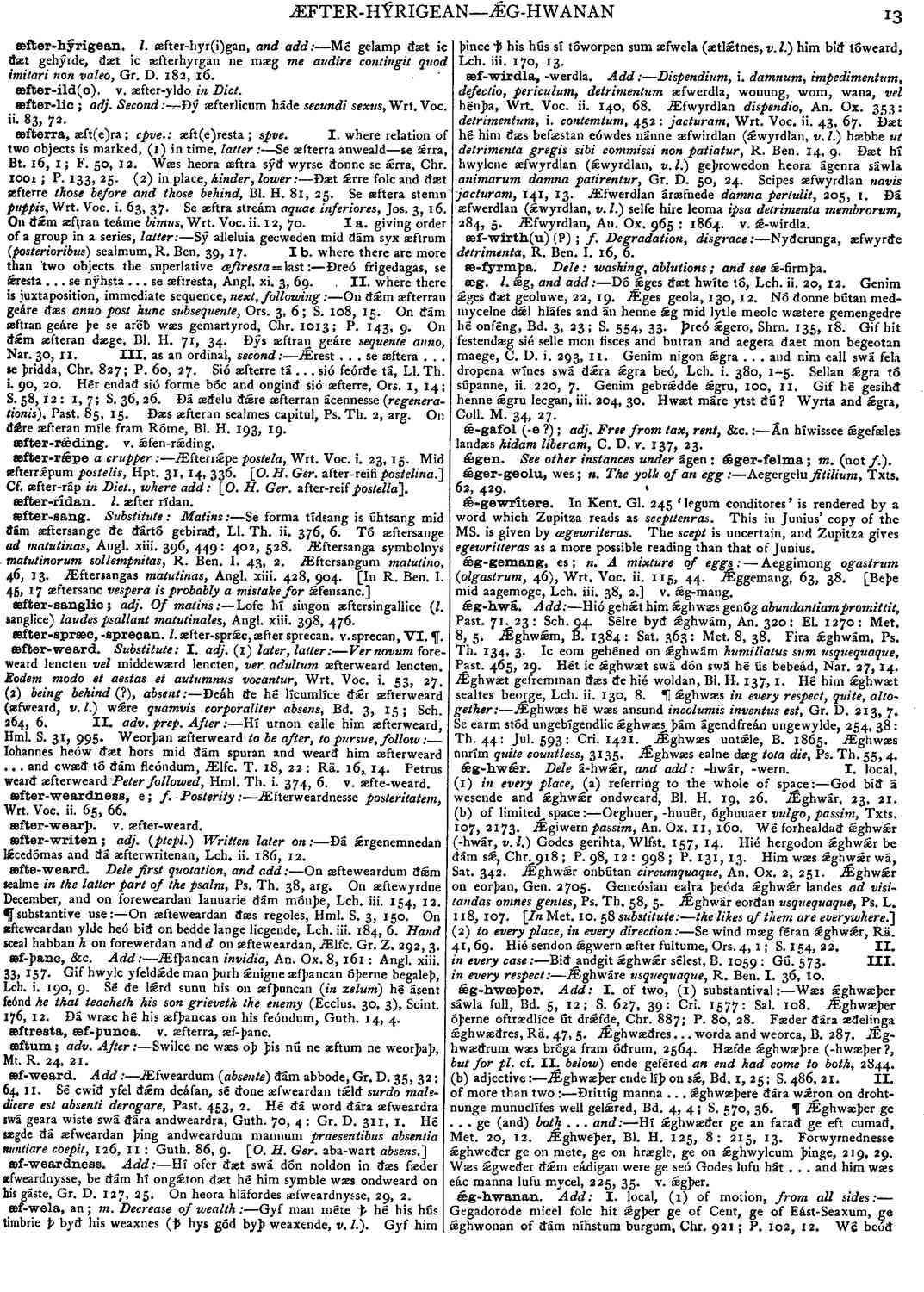ǽg-hwæþer
-
Wæs ǽghwæþer sáwla full,
- Bd. 5, 12; S. 627, 39: Cri. 1577: Sal. 108.
-
Ǽghwæþer óþerne oftrædlíce út drǽfde,
- Chr. 887; P. 80, 28.
-
Fæder ðára æðelinga ǽghwæðres,
- Rä. 47, 5.
-
Ǽghwæðres . . . worda and weorca,
- B. 287.
- Ǽghwæðrum wæs bróga fram óðrum, 2564.
-
Hæfde ǽghwæþre (-hwæþer?, but for pl. cf. II. below) ende geféred
an end had come to both,
2844.
-
Ǽghwæþer ende líþ on sǽ,
- Bd. 1, 25; S. 486, 21.
-
Ðrittig manna . . . ǽghwæþere ðára wǽron on droht*-*nunge munuclífes well gelǽred, Bd. 4, 4; S. 570, 36. ¶ Ǽghwæþer ge . . . ge (and) both . . .
and
:-- Hí ǽghwæðer ge an farað ge eft cumað,- Met. 20, 12.
-
Ǽghweþer,
- Bl. H. 125, 8: 215, 13.
-
Forwyrnednesse ǽghweðer ge on mete, ge on hrægle, ge on ǽghwylcum þinge,
- 219, 29.
-
Wæs ǽgweðer ðǽm eádigan were ge seó Godes lufu hát . . . and him wæs eác manna lufu mycel,
- 225, 35.
Bosworth, Joseph. “ǽg-hwæþer.” In An Anglo-Saxon Dictionary Online, edited by Thomas Northcote Toller, Christ Sean, and Ondřej Tichy. Prague: Faculty of Arts, Charles University, 2014. https://bosworthtoller.com/37729.
Checked: 0